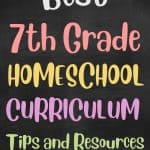7th Grade Homeschool Curriculum | Best Resources & Plans
Planning your 7th grade homeschool curriculum can feel overwhelming, but after years of homeschooling, we’ve found a mix of structured and flexible programs that truly work.
It’s hard to believe how quickly we’ve reached this stage—what once felt like a distant milestone is now our reality.
Over the years, we’ve explored a variety of homeschooling resources, some that we’ve stuck with and others that didn’t quite fit.
This year, we’re blending familiar favorites with a few new additions, keeping flexibility in mind while ensuring a well-rounded education.
From structured programs to hands-on learning, I’m excited to see how these choices support my son’s growth.
Here’s a look at what we’re using for 7th grade and why these selections made the cut.
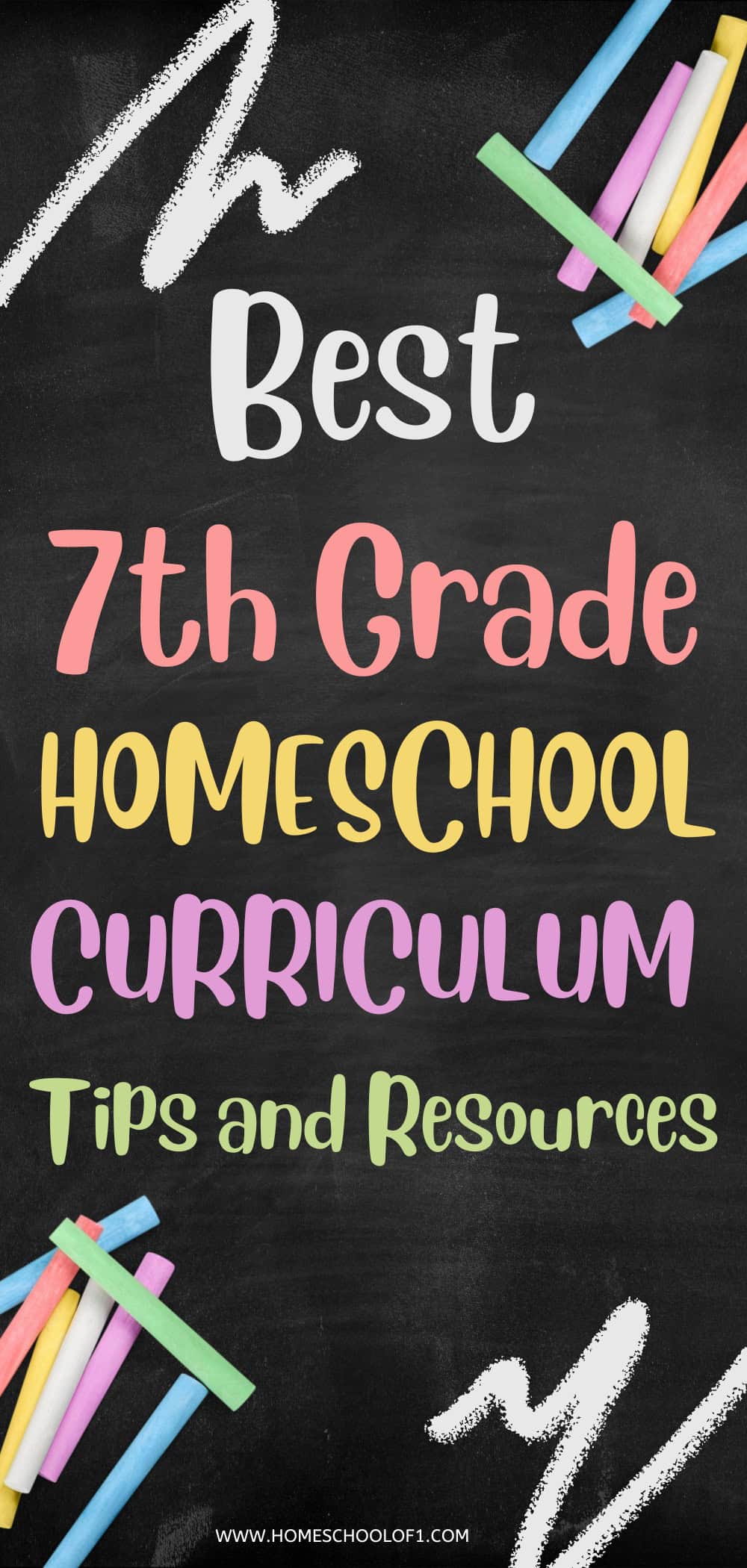
**This post may contain affiliate links. As an Amazon Associate and a participant in other affiliate programs, I earn a commission on qualifying purchases.**
Core Subjects and Electives
As we plan for 7th grade, I’ve focused on selecting a mix of structured programs and flexible resources to create a middle school homeschool curriculum that fits my son’s learning style.
Some subjects require a more traditional approach, while others allow for hands-on exploration and self-paced learning.
In addition to covering the essentials—math, language arts, science, and history—we’re incorporating electives that encourage creativity and real-world skills. This balance helps keep learning engaging while preparing for the transition to high school coursework.
Here’s a look at what we’re using for each subject this year and how these choices support our homeschool goals.
Homeschool 7th Grade Curriculum Overview
Here’s a quick look at the curriculum we’re using this year:
Math: Teaching Textbooks Algebra (high school credit).
Language Arts: Tan Book from Common Sense Press, writing prompts.
History: Middle Ages History Odyssey.
Science: Everything You Need to Ace Science, Crash Course videos.
Foreign Language: Japanese From Zero.
Electives: Economics, government, Shakespeare, music, coding, geography.
Now, let’s break down each subject in more detail!
Math Curriculum
For 7th grade math, we’re using Teaching Textbooks for high school credit. This algebra curriculum provides interactive lessons, automated grading, and plenty of practice problems, making it a solid choice for independent learning.
Since algebra is a key subject, having a curriculum that explains concepts clearly is essential. Teaching Textbooks includes step-by-step video solutions, ensuring students understand each lesson before moving forward.
It’s a self-paced program, allowing flexibility while maintaining a structured approach to learning.
If you’re considering Teaching Textbooks, check out our full review and explore their free trial to see if it’s the right fit for your homeschool.
Wondering how we approached math last year?
Check out our 6th grade homeschool curriculum to see what we used before moving to Algebra!
English Language Arts
For language arts, we’re using The Tan Book from Common Sense Press, a literature-based program that integrates grammar, writing, and vocabulary. This curriculum provides structured lessons while allowing flexibility for independent reading and creative writing.
To strengthen comprehension and writing skills, we incorporate printable writing prompts, book reports, and literature discussions. A variety of reading materials, including novels, short stories, and nonfiction, ensure exposure to different genres and writing styles.
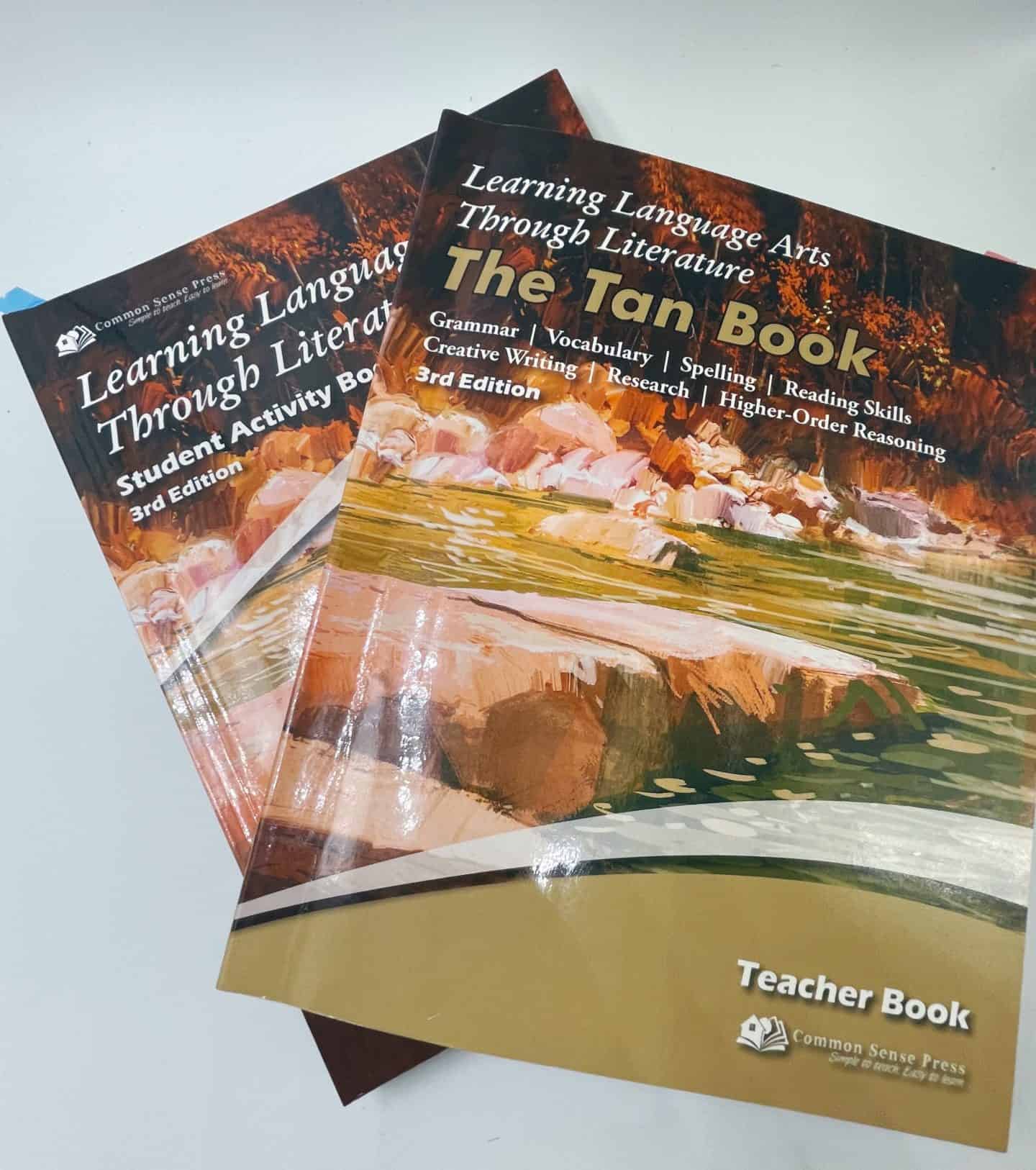
By engaging with a diverse selection of texts, students develop critical thinking, vocabulary, and a deeper appreciation for literature.
Whether through structured assignments or independent reading, this approach supports well-rounded language development.
Looking for more options? Explore some of the best homeschool literature curriculum options to find the right fit.
History
For seventh grade homeschool history, we’re using Middle Ages History Odyssey from Pandia Press, a literature-based curriculum that provides an in-depth study of medieval history.
This program combines reading, critical thinking exercises, and hands-on activities, making history both engaging and comprehensive.
A key resource for this course is the Kingfisher History Encyclopedia, which offers detailed historical context and visuals to support learning. Additional recommended books help expand on key events, figures, and themes from the Middle Ages.
This curriculum encourages independent research, timeline work, and primary source analysis, ensuring students develop a strong understanding of historical events and their impact.
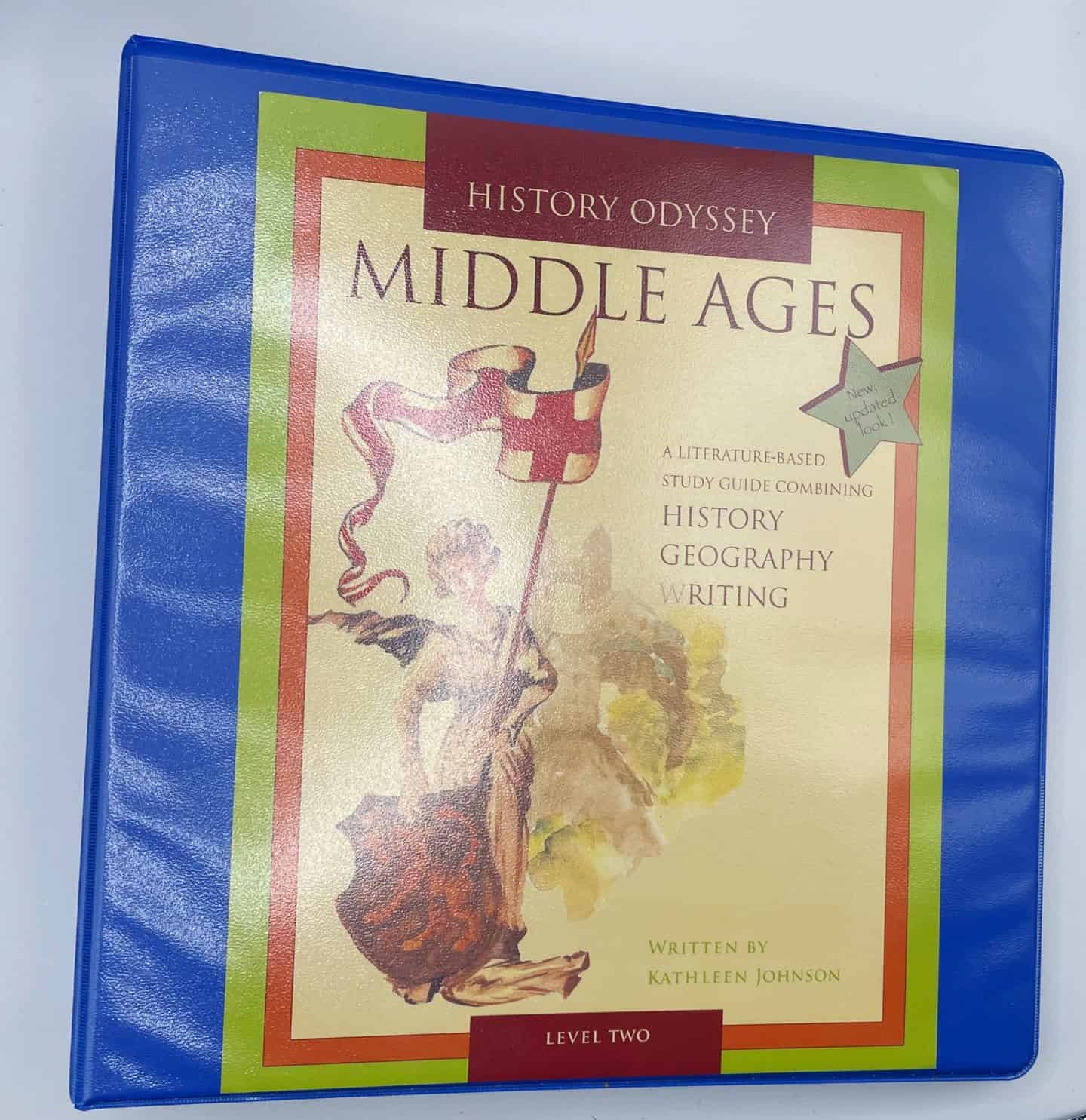
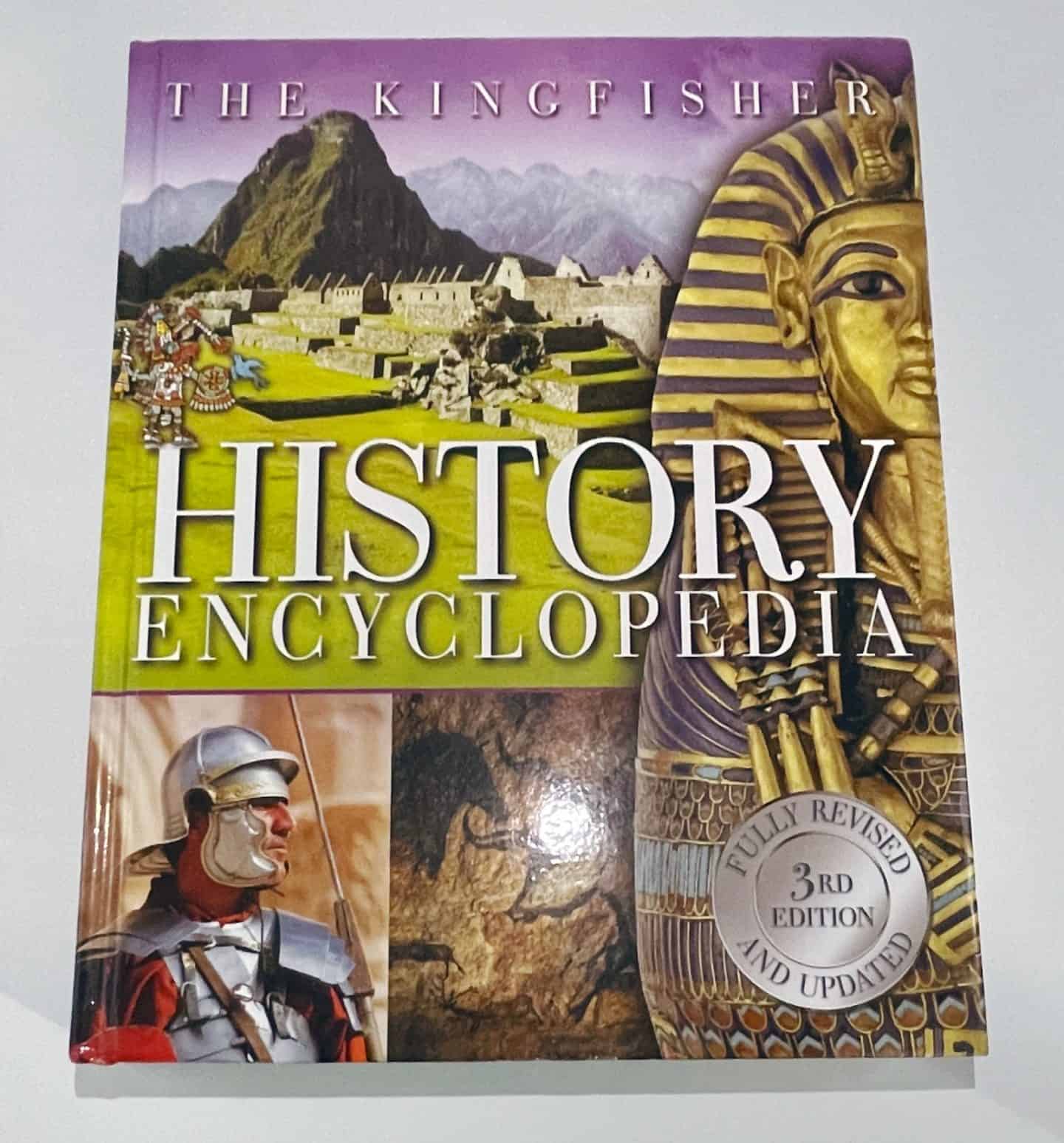
Interested in a deeper look? Read our full History Odyssey review or explore more history homeschool resources to find the right fit.
Science
For science, we’re combining hands-on learning with structured resources to create a balanced approach. A local science club provides opportunities for experiments and group projects, reinforcing key concepts through real-world applications.
At home, we use Everything You Need to Ace Science, a comprehensive guide that covers core topics in a clear, engaging format.
Supplementing this, Crash Course YouTube videos help break down complex concepts with visual explanations, making them easier to understand.
We previously explored Real Science Odyssey, but found it to be too lab-intensive for our needs. However, we may revisit it this year to incorporate more structured lessons alongside our other resources.
Looking for the right fit? Check out some of the best homeschool science curriculum options to find one that works for your student.
Foreign Language
After completing Mr D Math ASL 1 for high school credit, we’ve shifted our focus to learning Japanese.
This transition has been made easier with structured resources designed for beginners, helping to build a strong foundation in vocabulary, grammar, and conversation.
Foreign language learning is an important part of our curriculum, encouraging cultural awareness, critical thinking, and communication skills.
Japanese has been an exciting challenge, offering a unique writing system and a new perspective on language structure.
Exploring language options? Here are some of the foreign language homeschool curriculum choices to consider.
Electives
In addition to core subjects, electives play an important role in our 7th grade homeschool curriculum, allowing for skill development, creativity, and personal interests.
This year, we’re incorporating economics, government, music, keyboarding, coding, geography, and Shakespeare studies, ensuring a well-rounded educational experience.
Economics & Government
For high school economics curriculum, we’re continuing with Mr. D Math, which provides a solid foundation in financial literacy and economic principles. This course counts as high school credit, making it a great addition to our middle school studies.
For our high school government curriculum, we’re using Principles and Precepts of Government, a structured program that introduces key concepts about the U.S. government. This curriculum counts as 0.5 high school credit and helps develop an understanding of civic responsibility.
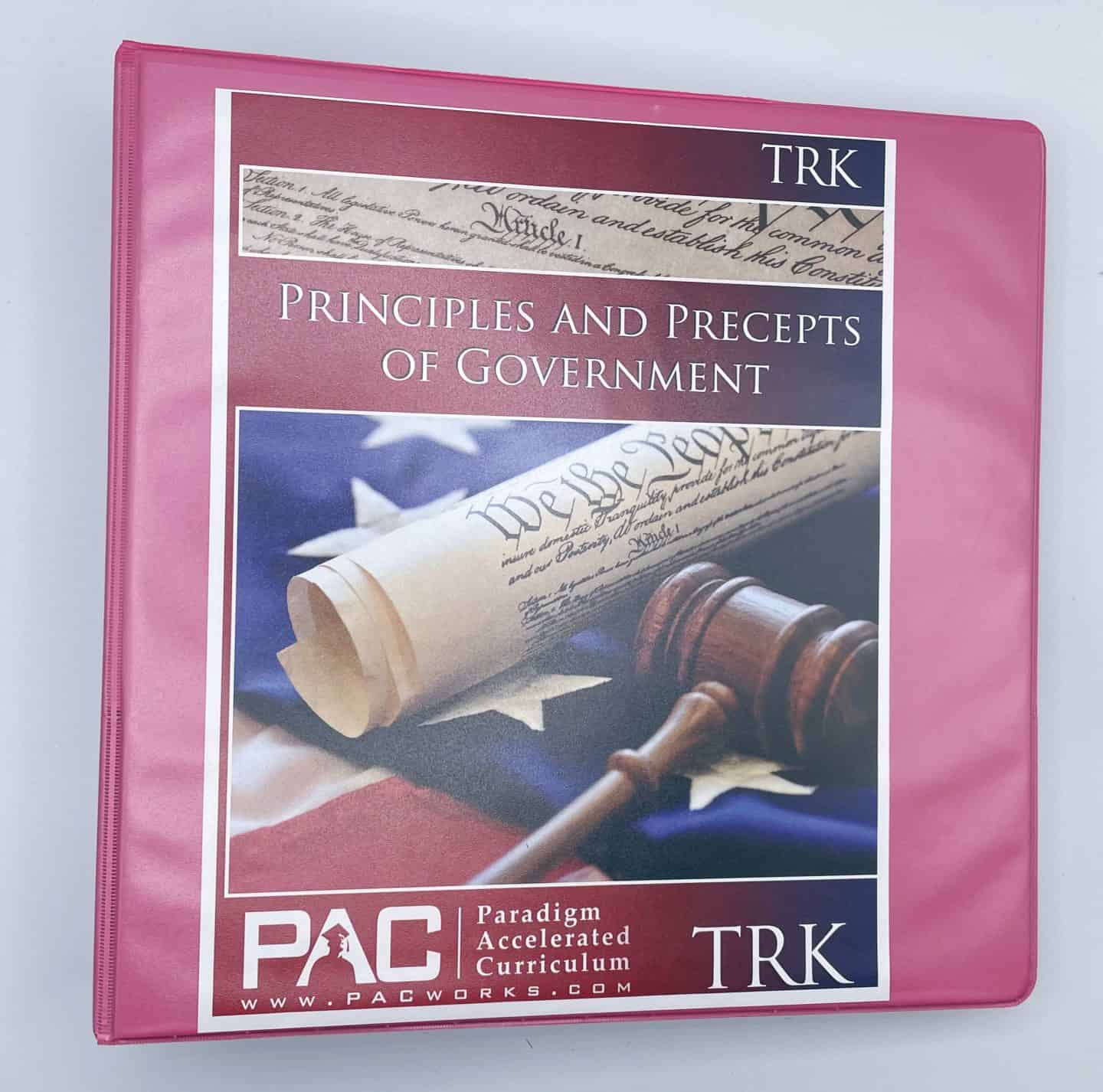
Shakespeare & Literature Studies
Our Shakespeare studies continue with a 10 week course, offering an in-depth look at his works and their influence on literature. By the end of the year, this will count toward a Fine Arts or English high school credit.
Exploring Shakespeare has sparked a real interest in classic literature, making this an engaging elective.
Looking for great books? Check out our favorite Shakespeare books for kids!
Keyboarding & Music
We’ve introduced Typesy for typing practice, dedicating 15 minutes a day to improving keyboarding skills.
For music, he takes online piano lessons and participates in a composer unit study. While we may not assign high school credit for music this year, it remains an important part of his education.
Grab our free music composer worksheets or explore more homeschool music curriculum options.
Coding & Physical Education
For coding, we’re continuing with CodaKid, a program that teaches real-world programming skills.
For physical education, he stays active through basketball, swimming, and daily walks, ensuring movement is part of our routine. PE is essential not just for fitness but also for focus and overall well-being.
Geography
We’re exploring U.S. geography informally using maps, interactive books, and free geography worksheets.
This hands-on approach helps reinforce knowledge of states, capitals, and geographic features in an engaging way.
Interested in geography? Check out our favorite homeschool geography curriculum resources.
Daily Homeschool Routine
Our 7th grade homeschool schedule is designed for flexibility, balancing structured lessons, hands-on learning, and independent study.
We homeschool year-round, taking breaks when needed, with a longer break from Thanksgiving through January 3rd.
A typical homeschool day runs from 9 AM to 4 PM, but this includes a mix of activities, not just desk work. Independent study, hands-on projects, and breaks for movement (walks, lunch, or creative activities) help keep the day balanced.
This flexibility allows for a customized learning approach, making sure each subject gets the time it needs while keeping our homeschool experience engaging and stress-free.
Field Trips and Extracurricular Activities
Field trips bring learning to life, making subjects more engaging and interactive. We visit museums, historical sites, and science centers to reinforce what we’re studying, helping to deepen understanding through real-world experiences.
Beyond academics, field trips also provide valuable socialization opportunities, allowing interaction with other homeschoolers in a natural setting.
For days when going out isn’t an option, we explore virtual field trips, which offer immersive experiences without leaving home. These have been a great addition, especially for exploring places beyond our local area.
Last Updated on 7 April 2025 by Clare Brown



